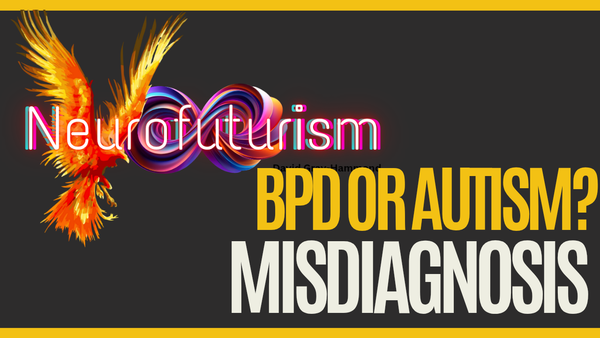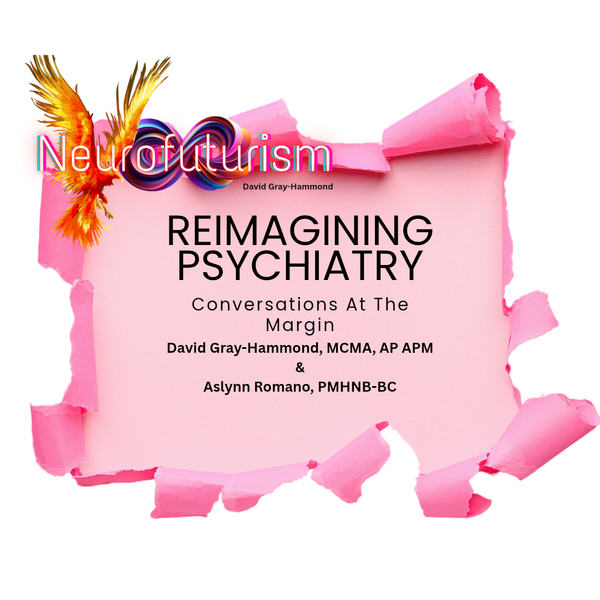Late-diagnosis of autism is creating a mental health crisis
Late-diagnosis of autism may be driving a mental health crisis that could cost lives. Is it possible to mitigate this effect?

A topic of much discussion in the field of autism is one of the high rates of under-diagnosis that exist. As of 2023 there were 463,500 diagnosed Autistic people in the UK. Comparatively, there is estimated to be as many as 1.2 million undiagnosed Autistic people living in the UK (O'Nions et al, 2023). The same study also found that as age increased, the rate of diagnosis decreased (for more on this, click here). This presents a challenge for Autistic adults who are likely to have been exposed to negative attitudes and inaccessibility of services in the absence of a diagnosis to describe their struggles.
What is the relationship between autism and mental health?
Estimates place the prevalence of psychiatric diagnoses in Autistic adults as high as 79% (Curnow et al, 2023). Even during the COVID pandemic, this prevalence was only 29.2% for the general population (Li & Wang, 2020). I find it deeply concerning that during a globally traumatic event, rates of mental health issues are so dramatically out-paced by Autistic adults in unremarkable times.
One factor we have to consider is the impact of people's attitudes on Autistic people. Autism comes with a lot of stigma and negative beliefs surrounding how we embody our existence.
...the standard sort of report would be I’m a disruptive influence and it’s not fair to the children who, who want to, uh, want to learn in the class. So that was a common thread through, through my education. I was disruptive
Nicholas- Lupindo et al (2023)
There kinds of attitudes are a frequent feature of autism discourse. In the absence of diagnosis (and often even with one) we are treated as morally deficient beings rather than humans deserving of dignity.In there study of ten late-diagnosed men, it was frequently reported that late-diagnosis had a significant negative impact on their psychological wellbeing (Lupindo et al, 2023).
Autism and Suicidality
It should come as no surprise that these high rates of mental health issues translate into dramatically higher rates of suicidality. Newell et al (2023) found a prevalence of 34.2% for suicidal behaviour and 24.3% for suicide attempts and behaviour. Prevalence estimates from that study jumped to 63.8% where a person was also transgender or gender non-conforming. 72% of Autistic adults surpass the threshold for suicide risk indicating those with a formal autism diagnosis or Autistic traits are significantly more likely to experience suicidality (Cassidy et al, 2018). Overall, Autistic people represent 10.8% of those who die by suicide compared to just 1.1% of the general population (Cassidy et al, 2022).
Again we have to consider the impact of living large parts of our life without diagnosis. Exposure to negative attitudes and isolation from Autistic spaces, coupled with the impact of masking and burnout, in my opinion, create a self-fulfilling prophecy.
Autism, mental health, and minority stress
Meyer (2003) conceptualises the minority stress model as arising from a discrepancy between a minority cultures values and the views and actions of wider society. While this was originally applied to sexual minorities, it is also applicable for disabled and neurodivergent communities. The collective discrimination we experience contribute to minority stress, also the increased rates of trauma as a result (more on trauma by clicking here).
Increased exposure to minority stress appears to have a correlation with decreased psychological wellbeing and mental health, with intersecting minority identities compounding this (Botha & Frost, 2018). Given the significant presence of minority stress in the lives of Autistic people, we can begin to understand why we see such high rates of mental health problems. What is interesting however is that Autistic community-connectedness actually appears to limit the impact of minority stress. Simply put, being connected with your own community appears to predict better mental health outcomes (Botha, 2020).
Despite this, it is necessary still to consider that minority stress is unavoidable, and therefore we must consider the arising masking and subsequent Autistic burnout and how this relates to the mental health of Autistic people.
Autistic masking and mental health
Pearson & Rose (2021) position masking as a response to deficit narratives and stigma, broadly speaking these could be understood as factors in Meyer's (2003) discrepancy between Autistic values and those of wider society. In my own opinion, current medical models of autism feed directly into deficit narratives wherein autism is viewed through the lens of disorder rather than difference.
Masking appears to be associated with worse outcomes for mental health, and interestingly lower participation in Autistic spaces (Evans et al, 2023). It is notable that reduced participation in Autistic communities will limit the community connectedness that ameliorates the impact of minority stress (Botha, 2020).
Unsurprisingly, higher rates of masking are associated with feeling less like a person belongs and increased lifetime suicidality (Cassidy et al, 2020). Pearson & Rose (2021) also suggest the possibility of a link between masking and Autistic burnout. In my own professional experience, this is more of a certainty than a possibility. For more on masking read this article.
Autistic burnout and mental health
“Autistic burnout” is often used by autistic adults to describe a state of incapacitation, exhaustion, and distress in every area of life. Informally, autistic adults describe how burnout has cost them jobs, friends, activities, independence, mental and physical health, and pushed them to suicidal behavior.
Raymaker et al, 2020
There are growing ideas from the Autistic community on the full impact of Autistic burnout (more on this here). Tanya Adkin has discussed concepts such as monotropic split and spiral which may account for some of the variation we see in the presentation of Autistic burnout.
Academic literature is relatively sparse on this topic, although it does suggest that Autistic burnout is associated with worse mental health outcomes (Higgins et al, 2021). Autistic burnout is also a barrier to the aforementioned community connectedness.
How does this relate to late-diagnosis?



